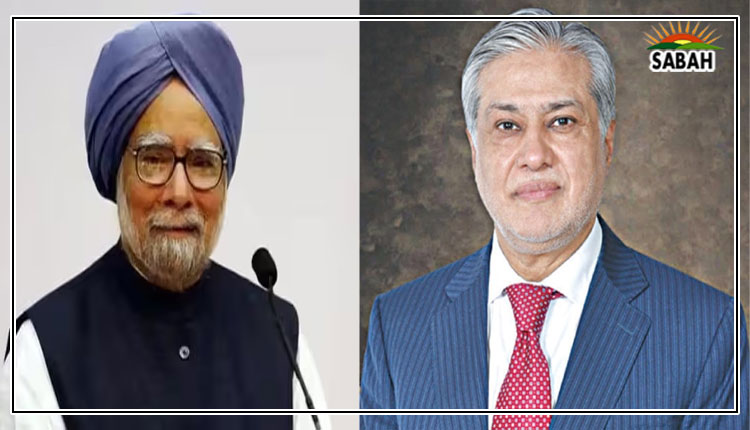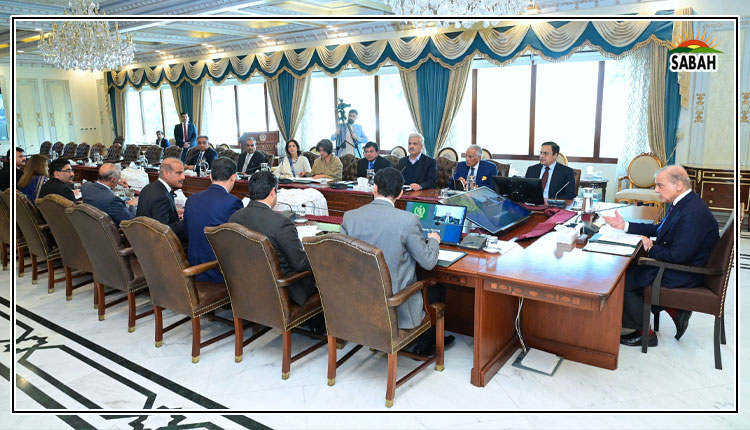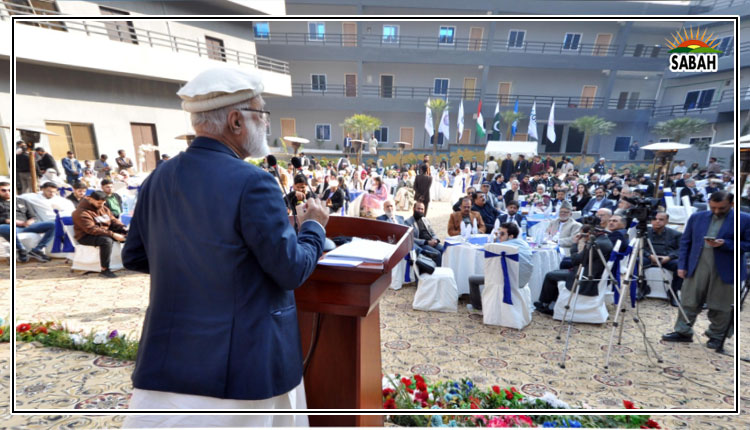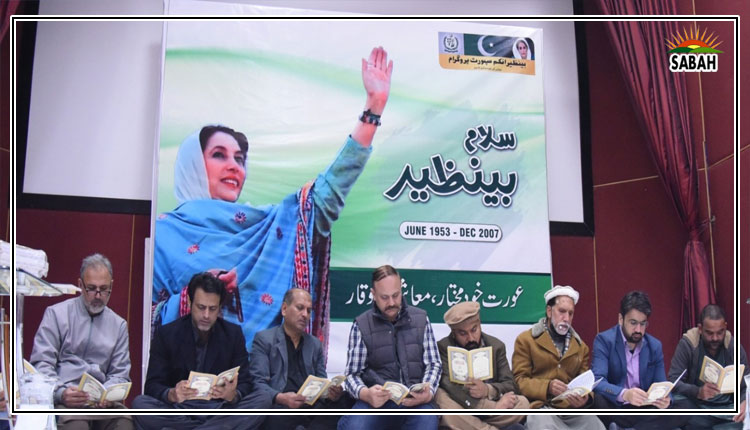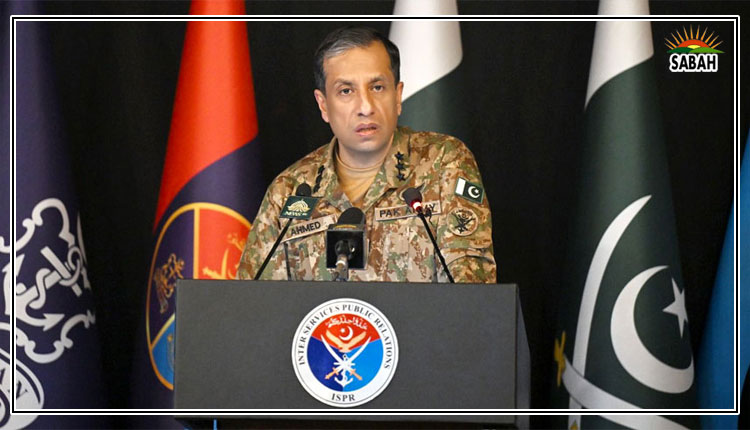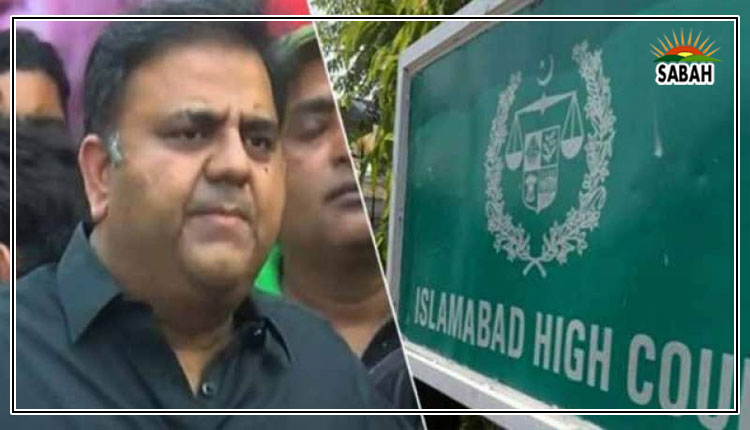IHC Justice Miangul Hasan Aurangzeb bars police from arresting Fawad Chaudhry in any case for two days
ISLAMABAD, May 16 (SABAH): The Islamabad High Court Justice Miangul Hasan Aurangzeb, while ordering the release of Pakistan Tehreek-e-insaf (PTI) leader Fawad Ahmed Chaudhry, has ordered not to arrest him in any case, including the undisclosed ones, within the limits of the federal capital for the next two days.
Fawad Chaudhry had earlier returned to the Islamabad High Court seeking protection, shortly after the court issued his release.
The IHC on Tuesday ordered authorities to release the PTI leader from custody after he was detained on May 10 and declared his arrest “illegal”.
However, as Fawad made his way to his car following his release, the Islamabad police made an attempt to rearrest him. The police reportedly sealed all entrances at the court premises.
In a dramatic turn of events, the PTI leader ran back inside the court’s premises to evade arrest.
Through its official Twitter handle the party claimed that “another attempt to abduct” the former minister was being made by the Islamabad police.
Fawad Chaudhry was apprehended by the police last week as he emerged from the Supreme Court (SC) building, where he had sought refuge for over 12 hours in an attempt to evade his impending arrest.
He had arrived at the court earlier that day to file a petition challenging the IHC’s order giving legal cover to party chief Imran Khan’s arrest. Shortly after, law enforcement authorities reached the court and waited to detain him. Despite having remained inside the apex court throughout the day, he was eventually taken into custody late in the evening.
Justice Miangul Hasan Aurangzeb of the IHC was hearing an application challenging the arrest. On Monday, the court had ordered the IG Islamabad police to present him before the court.
During the proceedings on Tuesday, IHC’s Justice Miangul Hassan Aurangzeb asked the Advocate General Islamabad (AGI) Barrister Jehangir Khan Jadood to present Fawad’s detention orders and to read the earlier IHC order preventing his arrest before the court.
The court then observed that the orders for the ex-minister’s detention had been issued on May 10.
“Even if we assume that the IG did not receive the IHC orders and that he does not watch the news, you should have at least looked at it when he [Fawad] presented the court orders prior to his arrest,” the judge said noting that the case would have “very serious consequences”.
“The district magistrate issued the arrest orders without verifying the court orders [preventing the arrest],” the court observed.
Justice Aurangzeb said that the court would order a file on contempt of court to be issued against the concerned IG and the district magistrate.
“I will ask all petitioners to sign an undertaking not to breach the Section 144 imposed,” the judge remarked, adding that anyone going against the undertaking would be eligible for disqualification.
He also expressed his dismay over the problematic implementation of the ban on assembly saying, “You use Section 144 wherever you wish to”.
“If contempt of court starts in my court then it doesn’t stop at anything,” Justice Aurangzeb said as he granted the law officers time to reconsider. Meanwhile, Fawad was asked to remain within the courtroom.
After the court reconvened, the AGI informed the court that Fawad had not been arrested but was “taken into custody” under the 3MPO (provisions for maintenance of public order).
He also said that the IG’s office and other law officers were not provided with a copy of the order.
“If a person is arrested, they have to be presented before a magistrate within 24 hours”, the AGI said, “Fawad Chaudhry was not arrested, not under any known case nor any hidden one”.
“He was only taken into custody,” he stressed. “If an arrest was made after court orders barring it, I would not have defended the state’s stance,” he added. After hearing all arguments, the court ordered Fawad to be released.
Earlier talking to reporters at the court, PTI Senior Vice President Fawad Chaudhry wondered how thousands of people could be tried under the Pakistan Army Act after the military vowed to bring all those involved in May 9 violence to justice.
“How would they pursue the cases against eight to ten thousand people,” Fawad asked while responding to journalists’ questions when he was brought to the Islamabad High Court (IHC) for an appearance in a case.
Fawad expressed concern for the state of affairs and said it would be best if we work towards resolving the conflict. He said that 8,000 to 10,000 people have been arrested countrywide which was a point of concern. “If there would be any law and order only then we could think about moving forward,” he said. When asked about the military top brass’ decision to pursue cases under Army Act, he said “How can they run such cases against their own people”. “The political temperature just won’t turn down,” he regretted.



